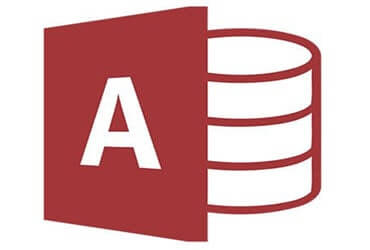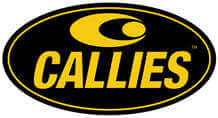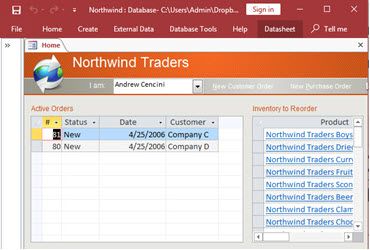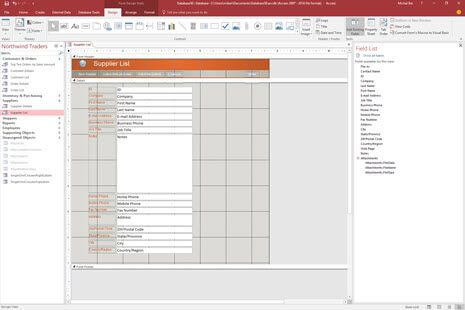
MS Access As A Dev Tool
Access continues to be an efficient tool for business database development.
The Best Microsoft Access Database Solutions owner, consultant, and principal programmer is Alison Balter, a recognized Microsoft Access consultant. Alison is the author of 15 Microsoft Access training books and videos. She is a frequent speaker at MS Access conferences and has developed hundreds of applications for businesses of all types.
We listen to your team, gather requirements, and design the right database architecture. Then we build the forms, queries, and reports you need so daily work is accurate and fast.

We also create fast websites that display your data accurately using ASP.NET. These sites and web applications deliver reliable access to information across your organization.








Access continues to be an efficient tool for business database development.

How to create a Microsoft Access application with practical tips.

Tips for using Access efficiently in day to day work.
Here are just some of the Microsoft Access programming services we can perform for you
We build forms that move fast, reduce keystrokes, and block bad input with tab order, input masks, and field validation. Subforms, lookup combos, and conditional formatting keep attention on the fields that matter, which cuts training time and errors.
Clear groupings, totals, headers, and subreports deliver detail on demand without clutter. Filters, parameters, and PDF output let staff run the same layout for different dates or units without opening design view.
When objects fail to open or compile, we isolate the cause, relink tables, and fix broken references. Work proceeds from backups, damaged objects are recovered where possible, and changes are documented so the file is stable again.
We reduce file growth caused by design churn, temporary objects, and OLE attachments that embed large binaries. Cleanup routines, attachment strategy changes, and a compact cycle bring the file back to a manageable size and improve responsiveness.
Queries are written to filter early on indexed fields, avoid row by row functions, and return only the columns you use. For heavy workloads against SQL Server, logic moves to pass through or views so the server does the work and Access renders results.
Event driven modules and class based code handle form logic, validation, and background tasks with clear error handling and logging. Reusable procedures for imports, exports, and prompts keep behavior consistent across the app.
We replace fragile macro steps with structured VBA that has input checks and centralized error paths. Code is easier to maintain and test, and less likely to break when Access or Office versions change.
Repeatable specs for Excel and CSV with column mapping and type enforcement so incoming data lands clean. Deduping rules and simple exception logs support predictable runs that operations staff can trust.
Each user gets a local front end for forms, queries, and VBA, the shared back end holds tables only. This improves stability for teams, and path changes are handled with Linked Table Manager or a small relink routine.
Tables move with SSMA, data types are reviewed, and identity keys and defaults are corrected before go live. Linked tables or pass through queries connect the new store, then we update forms and reports that relied on Access only features.
Frequent filters and joins map to indexes, heavy calculated controls are trimmed, and lookups that reload often are cached. For hybrid setups, a persistent connection reduces reconnect cost and keeps the interface responsive.
Back end files sit behind Windows folder permissions, front ends ship as ACCDE to protect code and design. Audit tables record who changed what and when, including old and new values needed for reviews.
Declare statements are updated with PtrSafe and LongPtr where required, then library references are fixed and compiled. Packaging as ACCDE for the target bitness cuts surprises for users and support staff.
Reliable links to Excel and SharePoint lists for day to day work, plus a Power Query connector so analysts can bring Access data into Power BI. Connection paths and refresh steps are documented so reporting does not depend on one person’s machine.
MS Access Solutions builds Access applications that people use every day, forms that move fast, reports that answer real questions, and data flows that do not break when a folder path changes. For Lawndale organizations, our work spans new builds and long term fixes. Call (323) 285-0939 to talk through your project and the steps that get it done.
Projects usually start with a short review of your tables and pain points, then we tackle the items that block work. Forms get a clean tab order, input masks, and field checks so data entry is quick and accurate. Reports are rebuilt with clear groupings and totals, then saved to reliable PDF output. If the file is bloated or unstable, we clean attachments, remove temp objects, and run a compact cycle. When you have multiple users, we split the app into a local front end and a shared back end, then set up a simple relink routine so updates do not require IT tickets.
For teams that have outgrown a single Access file, we move tables to SQL Server or Azure SQL using the Microsoft SSMA tool, correct data types, and handle identity keys. Queries that need more speed become pass through or server views. VBA code replaces fragile macros, with error handling and logging that help support. Upgrades to 64 bit Office include PtrSafe and LongPtr work, plus a clean ACCDE build so everyone runs the same package. We also connect Access with Excel, SharePoint lists, and Power BI, with documented refresh steps and paths that your staff can manage. Security is handled with Windows permissions on the back end and role based rules in the app. You get a practical build, clear notes, and a point of contact who answers your email.
Find out more about our Microsoft Access programming services on the Microsoft Access programmer Lomita, California web page.